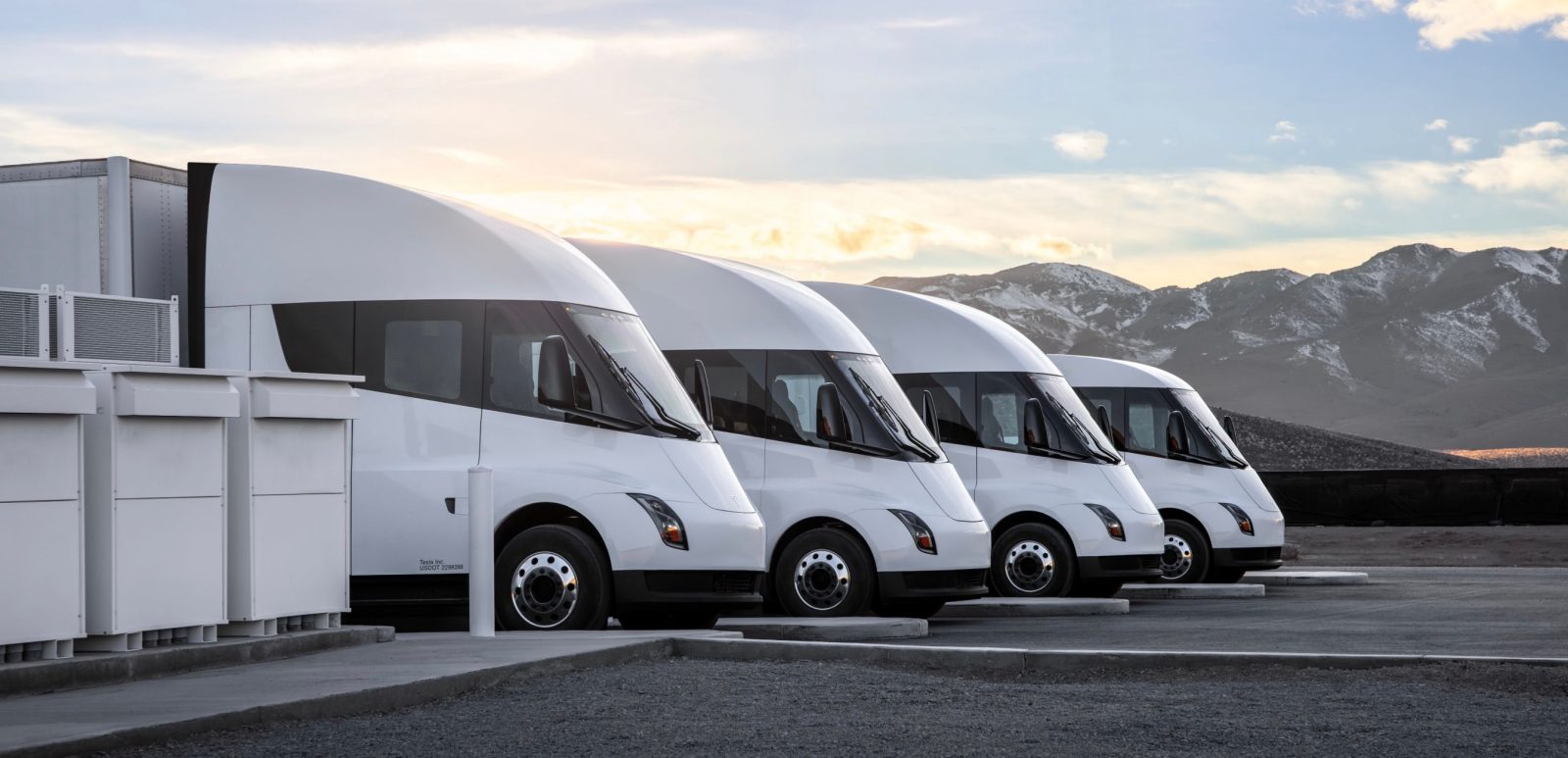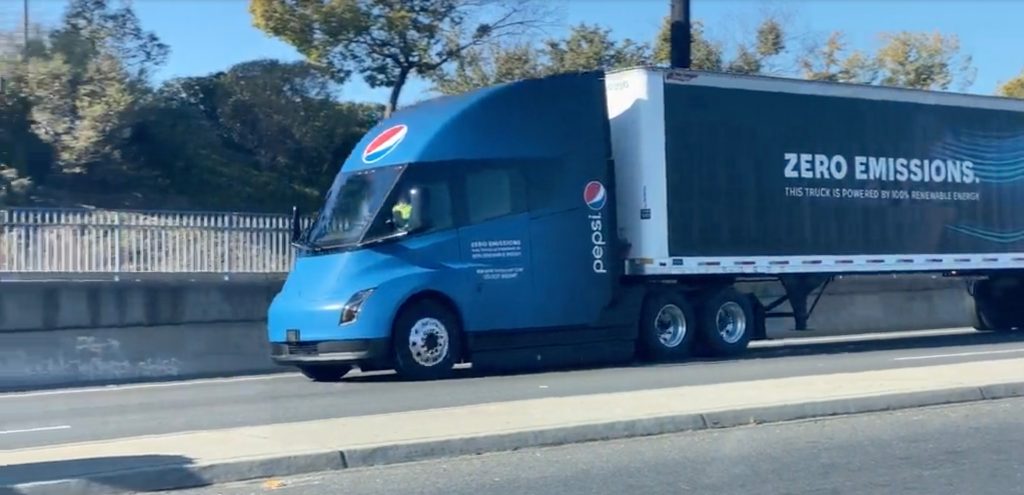
According to a Tesla Semi customer, the electric truck program is suffering more delays and a price increase that is described as “dramatic.”
Tesla Semi has seen many delays, more than any other vehicle program at Tesla.
It was initially unveiled in 2017, and CEO Elon Musk claimed that it would go into production in 2019.
In late 2022, Tesla held an event where it unveiled the “production version” of the Tesla Semi and delivered the first few units to a “customer-partner”: PepsiCo.

More than 3 years later, the vehicle never went into volume production. Instead, Tesla only ran a very low volume pilot production at a factory in Nevada and only delivered a few dozen trucks to customers as part of test programs.
But Tesla promised that things would finally happen for the Tesla Semi this year.
Tesla has been building a new high-volume production factory specifically for the Tesla Semi program in a new building next to Gigafactory Nevada.
The goal was to start production in 2025, start customer deliveries, and ramp up to 50,000 trucks yearly.
Now, Ryder, a large transportation company and early customer-partner in Tesla’s semi truck program, is talking about further delays. The company also refers to a significant price increase.
California’s Mobile Source Air Pollution Reduction Review Committee (MSRC) awarded Ryder funding for a project to deploy Tesla Semi trucks and Megachargers at two of its facilities in the state.
Ryder had previously asked for extensions amid the delays in the Tesla Semi program.
In a new letter sent to MSRC last week and obtained by Electrek, Ryder asked the agency for another 28-month delay. The letter references delays in “Tesla product design, vehicle production” and it mentions “dramatic changes to the Tesla product economics”:
This extension is needed due to delays in Tesla product design, vehicle production and dramatic changes to the Tesla product economics. These delays have caused us to reevaluate the current Ryder fleet in the area.
The logistics company now says it plans to “deploy 18 Tesla Semi vehicles by June 2026.”
The reference to “dramatic changes to the Tesla product economics” points to a significant price increase for the Tesla Semi, which further communication with MSRC confirms.
In the agenda of a meeting to discuss the extension and changes to the project yesterday, MSRC confirms that the project went from 42 to 18 Tesla Semi trucks while the project commitment is not changing:
Ryder has indicated that their electric tractor manufacturer partner, Tesla, has experienced continued delays in product design and production. There have also been dramatic changes to the product economics. Ryder requests to reduce the number of vehicles from 42 to 18, stating that this would maintain their $7.5 million private match commitment.
In addition to the electric trucks, the project originally involved installing two integrated power centers and four Tesla Megachargers, split between two locations. Ryder is also looking to now install 3 Megachargers per location for a total of 6 instead of 4.

The project changes also mention that “Ryder states that Tesla now requires 600kW chargers rather than the 750kW units originally engineered.”
Tesla Semi Price
When originally unveiling the Tesla Semi in 2017, the automaker mentioned prices of $150,000 for a 300-mile range truck and $180,000 for the 500-mile version. Tesla also took orders for a “Founder’s Series Semi” at $200,000.
However, Tesla didn’t update the prices when launching the “production version” of the truck in late 2023. Price increases have been speculated, but the company has never confirmed them.
New diesel-powered Class 8 semi trucks in the US today often range between $150,000 and $220,000.
The combination of a reasonable purchase price and low operation costs, thanks to cheaper electric rates than diesel, made the Tesla Semi a potentially revolutionary product to reduce the overall costs of operation in trucking while reducing emissions.
However, Ryder now points to a “dramatic” price increase for the Tesla Semi.
What is the cost of a Tesla Semi electric truck now?
Electrek’s Take
As I have often stated, Tesla Semi is the vehicle program I am most excited about at Tesla right now.
If Tesla can produce class 8 trucks capable of moving cargo of similar weight as diesel trucks over 500 miles on a single charge in high volume at a reasonable price point, they have a revolutionary product on their hands.
But the reasonable price part is now being questioned.
After reading the communications between Ryder and MSRC, while not clear, it looks like the program could be interpreted as MSRC covering the costs of installing the charging stations while Ryder committed $7.5 million to buying the trucks.
The math makes sense for the original funding request since $7.5 million divided by 42 trucks results in around $180,000 per truck — what Tesla first quoted for the 500-mile Tesla Semi truck.
Now, with just 18 trucks, it would point to a price of $415,000 per Tesla Semi truck. It’s possible that some of Ryder’s commitment could also go to an increase in Megacharger prices – either per charger or due to the two additional chargers. MSRC said that they don’t give more money when prices go up after an extension.
I wouldn’t be surprised if the 500-mile Tesla Semi ends up costing $350,000 to $400,000.
If that’s the case, Tesla Semi is impressive, but it won’t be the revolutionary product that will change the trucking industry.
It will need to be closer to $250,000-$300,000 to have a significant impact, which is not impossible with higher-volume production but would be difficult.
FTC: We use income earning auto affiliate links. More.